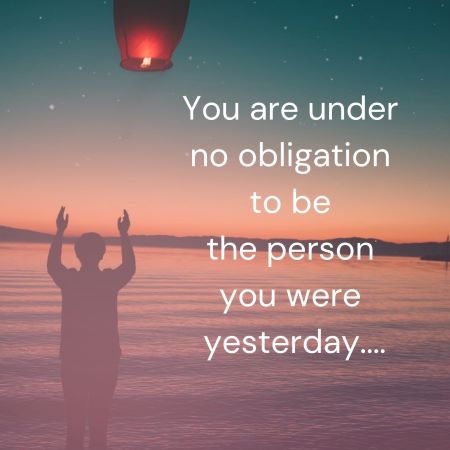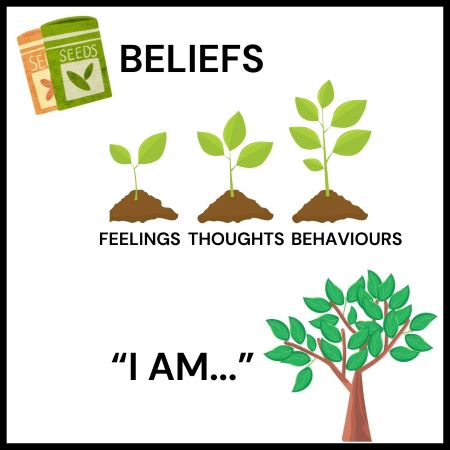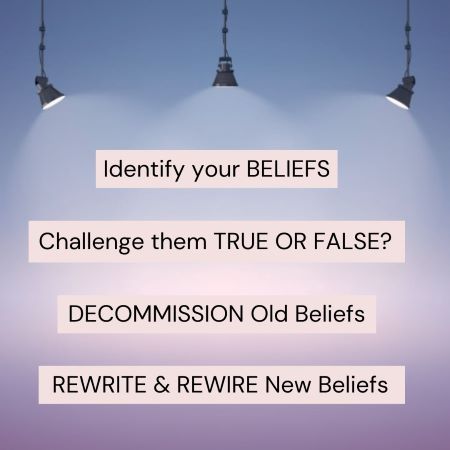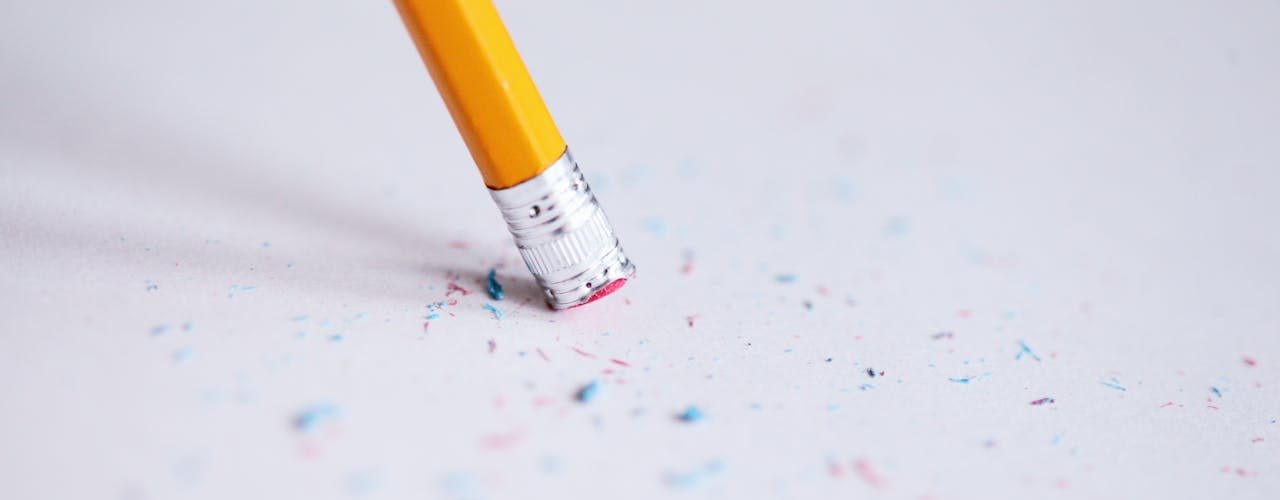Uncovering & Rewriting Limiting Beliefs
As therapists, one of our core responsibilities is to uncover, rewrite, and rewire the limiting beliefs that hold our clients back.
Among these, the belief we encounter most frequently is the pervasive thought, “I am not good enough“. Essentially, it reflects a deep sense of inadequacy—a feeling of being lacking in certain skills, talents, attributes, or outcomes. It’s that inner voice that convinces us we are somehow less than we truly are.
What Are Limiting Beliefs?
Limiting beliefs are deeply ingrained assumptions or thoughts that act as mental barriers, often holding us back from achieving our full potential. They are typically shaped by past experiences, societal influences, or fears, and can negatively impact our confidence, decisions, and actions. Or, to put it another way, if we were Superman, limiting beliefs would be our kryptonite, draining us of the power to succeed and thrive.
Limiting beliefs cling to us like barnacles, making them incredibly stubborn to remove.
This is why tools like affirmations, while valuable in their own way, may not be the best starting point. Initially, affirmations act like a temporary bandage, covering the issue without addressing its root cause. To truly heal, it’s essential to clean the wound first—identifying and addressing the underlying beliefs—so affirmations can later serve as an effective reinforcement tool.

Beliefs Shape Our Identity
Beliefs underpin all our feelings, thoughts, and behaviours, shaping how we perceive ourselves and interact with the world. They often operate unconsciously, influencing our emotions, decisions, and self-concept without question. Left unchecked, these beliefs can manifest in recurring, uncomfortable emotions such as helplessness, suppressed anger, or hopelessness, keeping us stuck in familiar yet unproductive patterns.
As we emphasise in RIRM, “What we do not repair, we repeat.” Unhelpful, and sometimes toxic, patterns will continue to cycle endlessly, showing up as unwelcome visitors in our daily lives until we address and transform them.
Crucially, these beliefs not only influence our behaviour but also shape how we perceive ourselves and define our identity. Thoughts like, “I’m unlovable” or “I’m a loser” can become ingrained in our self-concept, impacting how we connect with others and even whether we believe we are deserving of love and meaningful attachment.
Beliefs Are Like Seeds
Beliefs are like seeds from which the plant of our identity grows. If you plant a daffodil bulb, you will inevitably grow daffodil flowers.

Similarly, if the seed of belief is “I am not good enough,” the individual will grow into someone who, at their core, holds the deep conviction that they are not “good enough.” Just as the seed determines the nature of the plant, our beliefs shape who we become.
How Beliefs Are Formed
Beliefs are statements about reality that we accept as truth. Often, they are formed in childhood and become embedded in our mental “operating system,” influencing our thoughts and actions without question. Consider a 5-year-old you know—have you ever heard them tell a story that’s elaborate, nonsensical, or wildly inaccurate? For example, I once heard a child explain that Santa can eat all the mince pies left out for him at every house because he has a magic stomach, just like Mary Poppins’ bag. While this clever explanation is imaginative, it’s also a classic example of adding 2 and 2 and coming up with 37!
As very young children, we all formed beliefs based on limited reasoning and life experience. These beliefs often arose from conclusions we drew about ourselves, others, and the world around us.
How Beliefs Influence Behaviour
For example, imagine a teacher dismissing a child’s comment with, “Stop being stupid.” The child may internalise this message, forming the belief that they are inherently stupid. This belief might then shape their behaviour—driving them to overwork in an effort to prove their intelligence or to pursue endless qualifications as a way to validate their intellect.
Do you see how this all connects? Limiting beliefs, when left unchallenged, define our actions, shape our identities, and limit our potential. By addressing and transforming these beliefs, we unlock the ability to live with greater confidence, freedom, and fulfilment.
Use the Power of “I Am” Wisely
The phrase “I am” holds immense power because it defines how we perceive ourselves and shapes the stories we tell about our lives. These stories, in turn, influence our emotions, actions, and the outcomes we experience. At the heart of it all lies the seed of our beliefs—deeply rooted ideas about who we are and what we’re capable of. If the seed is nurturing, such as “I am capable” or “I am enough,” it fosters confidence, growth, and resilience.

However, if the seed is limiting, like “I am not good enough” or “I am a failure,” it can trap us in cycles of self-doubt and fear. These beliefs act as a filter, colouring how we interpret events and respond to challenges. By becoming aware of and reshaping these foundational beliefs, we gain the power to rewrite our inner narrative and transform our lives.
Is Your Belief Universal?
Ask yourself this: does the belief you hold apply only to you and not the other 8 billion people on this planet?
For example, consider the belief, “I am only okay if I am perfect.” Do you hold this same impossible and unrealistic standard for your loved ones? We’re guessing probably not!
This realisation highlights that it’s a one-person belief—specific to YOU. When a belief applies solely to you and not to others, it’s often a sign that it’s distorted, unhelpful, and potentially destructive. Such beliefs deserve to be questioned, decommissioned, and tossed in the bin where they belong. Releasing these “wonky” beliefs clears the way for healthier, more empowering perspectives.
The Powerful Inner Critic
The Inner Critic is that horrible self-talk we all experience from time to time. When it comes to beliefs, it really comes into its own! Have you ever said anything to yourself like, “See? Told you you weren’t cut out for this!” or“You’re just rubbish at this, so there’s no point even trying anymore.”
Now let us ask you this: would you ever say that to someone else? You see, your Inner Critic takes an underlying belief like “I’m not good enough” and then, when something happens, it combines the outcome of that event (something not going right) with the belief that you’re not good enough and creates a story about it that often turns into vile self-talk.
The event itself can often just be factual, but the Inner Critic can say such sharp things that we believe it. Over and over again, this critical self-talk renders you powerless to try and do something different because you begin to believe your Inner Critic.
A really powerful way to break out of that is to pinpoint some regular self-talk that you experience, jot it down in a notebook, and then ask yourself whether you’d ever say that to anyone else. If the answer is no, it’s got to go. Your superpower then is to tap on the side of your hand—sometimes called the Karate Chop point—and read out loud what you’ve written down. When your brain hears it out loud, it can create quite a jolt and reaction in your body. The tapping will soothe that, along with the emotions it brings up.
Do this often enough, and the Inner Critic will realise that its stories and yarns don’t equal the truth anymore, and it will quieten down. Repeat it for all your beliefs and self-talk, and you’ll end up with a lot more mental freedom, allowing you to try things you’d given up on—or worse, never dared try before.
So How Do We Flip These Limiting Beliefs?
We use psychotherapy tools combined with EFT to change beliefs. We have come up with a really easy way to remember the steps you need to take to truly create new beliefs out of old limiting ones. Below you see them all mapped out:
➤ RECOVER by healing any wounding and working through trauma without re-traumatising. Tapping is really important here because it helps you to feel safe and secure while you’re thinking about the beliefs you hold. A lot of emotions come up that are linked to the belief itself and how it impacts us. Tapping dissolves the negative charge of the emotions, leaving us feeling more peaceful and ready to believe something different.
➤ REWRITING beliefs by mapping out where they came from, how true they feel, what self-talk you experience because of them, and what you would love to believe instead.
➤ REWIRING the neural pathways that keep the limiting belief alive so it doesn’t feel true anymore and can be replaced by a more empowering belief.
➤ RESETTING your nervous system to achieve regulation. This includes lots of tapping on the emotions that come up around the belief, the meaning you’ve given it, the self-talk that ensues, and the limits it’s put on your life. This also includes dissolving the blame and shame that often come with deeply ingrained limiting beliefs like “I’m not good enough.”
➤ RE-IMAGINE—We invite you to take a moment now and consider what your life would be like if you believed:
- You were absolutely good enough, full stop.
- You were capable of amazing things.
- You were a good person.
- You deserve anything you desire.
- You were capable of doing anything.
- You were willing to do whatever it takes to achieve your dreams.
Take a moment and just breathe that in… It feels good, doesn’t it?
The key is to reimagine your future completely free of the limiting beliefs that have set up camp in your mind. Write in your journal or device all about how life would be, what you would do, where you would go, who you would hang out with, what you’d achieve, and—most importantly—how you would FEEL without these limiting beliefs holding you back. You can even read all that out loud while you tap to reinforce those new neural pathways and make them even stronger!
It really is in your hands. You have the power to rewrite your reality, no matter how challenging it feels in the present moment.

We are all deserving of living a rich and joyful life, and when you tackle the hand-me-down beliefs that keep us stuck, you open up to a bright new future. If we can help you create this, please don’t hesitate to get in touch! It truly is our favourite thing to do!
Main – Photo by Poppy Thomas Hill





